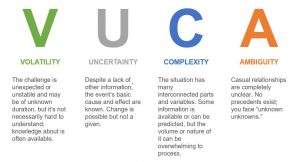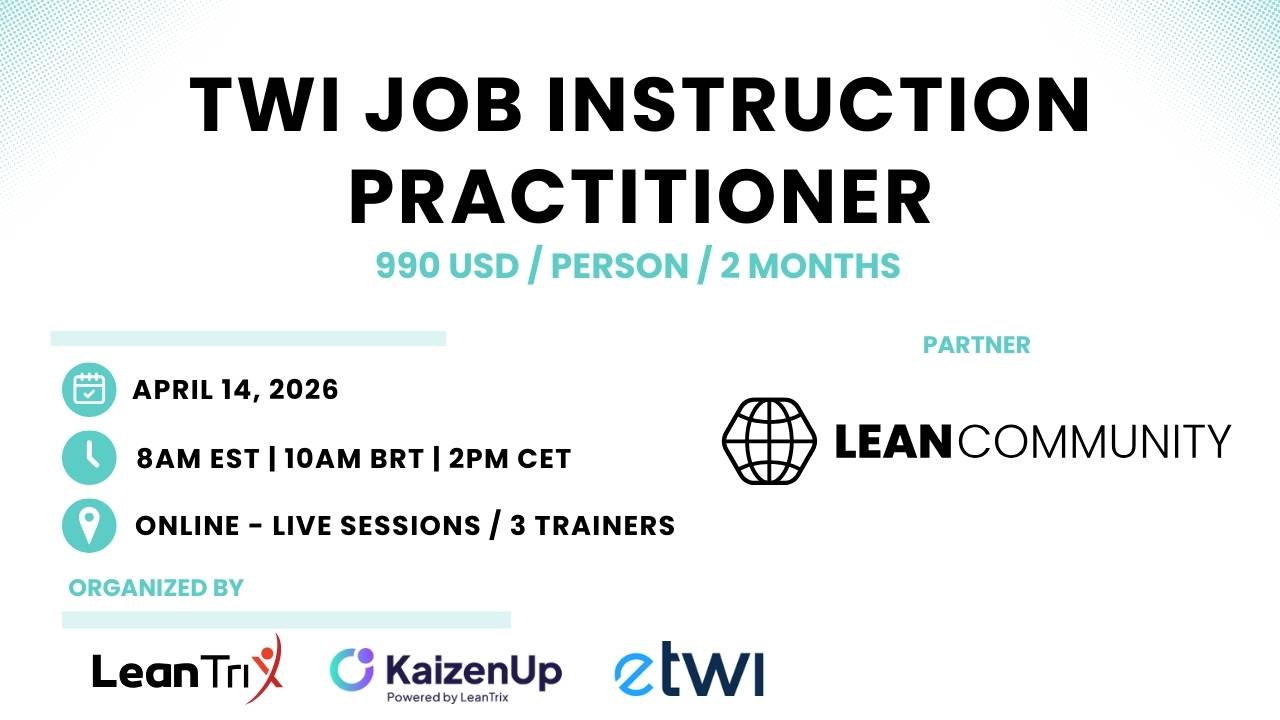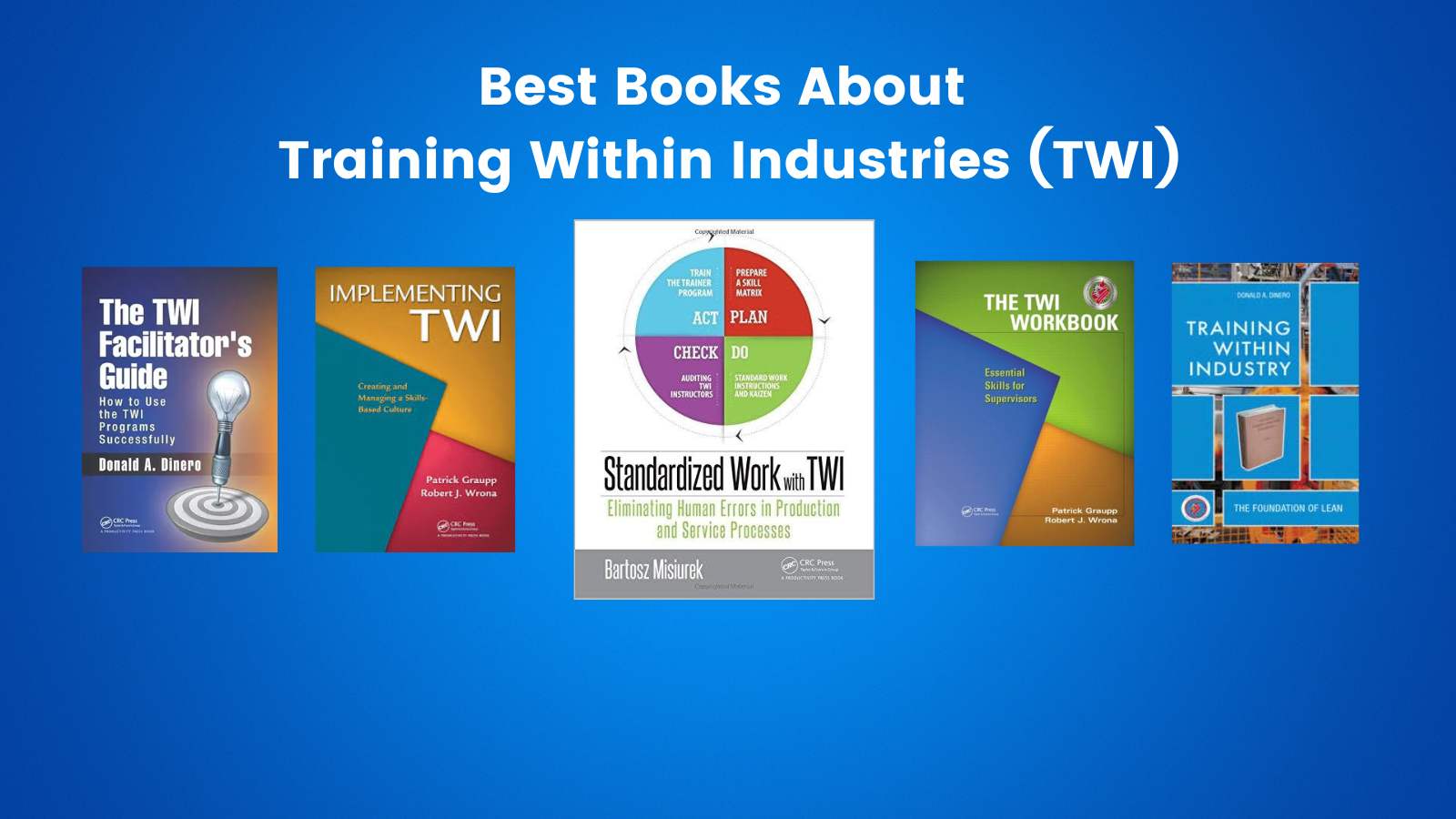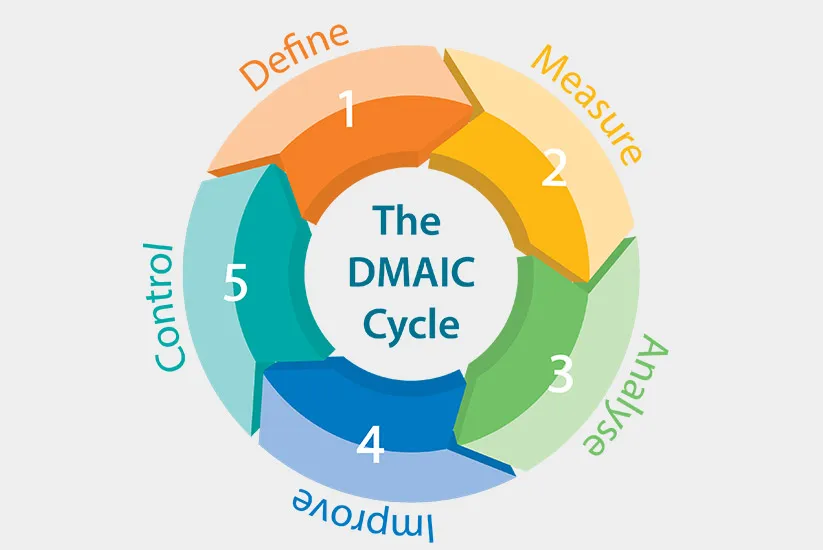VUCA World, a term originally coined by the U.S. military, has become a pivotal concept in understanding the dynamic and complex nature of the modern era. The acronym VUCA stands for Volatility, Uncertainty, Complexity, and Ambiguity, encapsulating the multifaceted challenges that both societies and businesses encounter in today’s fast-paced environment. This term underscores the need for adaptability and strategic foresight in navigating the unpredictable landscapes we face.
Table of Contents
ToggleVUCA Meaning
The history of entrepreneurship is full of descriptions of the transformation of big companies. Usually, such a transformation relates to situations in which leaders unexpectedly receive an impulse (they suddenly see an opportunity) that is contrary to their current strategy and long-term plans, and they are not only able to recognize it, but also take advantage of it. It has never been easy, and the reality of VUCA i.e. today’s world that is full of volatility, uncertainty, ambiguity and complexity, makes it more and more complicated and requires the development of new leadership skills.

Fig.1 VUCA
Years before the creation of the VUCA acronym, Peter Drucker actively articulated a critical observation on business success. He noted, ‘Often, a new venture finds its success in a market area different from the one initially assumed. It thrives with products distinct from those anticipated to be popular, attracting customers outside the targeted demographic… You need to be alert and ready for unforeseen success that is completely inconsistent with your original assumptions … ”
Key Leadership Skills
“Vigilance and readiness” are hidden in four key leadership skills: creating a vision, understanding, clarity, and agility, the first letters of which in English form the acronym VUCA (Prime). According to Bob Johansen’s concept, they are a response to the current turbulent reality. The first necessary condition for success is to give up detailed plans. For many managers, this may be highly controversial because a plan gives a sense of stability, and its implementation is the most important goal of their work. Putting plans aside, however, makes deep sense and is a must because plans have three major flaws:
- They quickly become outdated and useless. The reason for this is that the world is changing too fast, and the planning process, as well as the process of agreeing on these plans, is long in most corporations;
- Focusing on the implementation of the plan disables vigilance and narrows the field of view, which means that we lose the ability to see new, wonderful opportunities (“blindfolds”: nothing can be seen from the back and sides);
- Sticking to the plan reduces agility.
Vision in VUCA
More than a detailed plan, we need a vision – a business compass (direction). The vision is the first most important step in creating a Startup, implementing KATA IMPROVEMENTS, or creating organizational knowledge. For example, for employees of the TOYOTA production plants, such a vision is to reduce waste (muda). Each employee is sensitive to anything that does not generate value and should be eliminated. A plan is not needed. As Alvin Toffler once said: “When you do small things, you have to think about great things so that the little things always go in the right direction”. Thanks to this approach, Toyota regularly lowers costs by being an icon of Lean Management which was based on the Training Within Industry program.
Conclusions
As we navigate this VUCA World, the success of our organizations and societies will largely depend on our ability to recognize and adapt to the ever-evolving landscape. We must be willing to challenge our assumptions, learn continuously, and remain open to the myriad of possibilities that this complex world presents.
Leaders must move beyond traditional models of planning and decision-making, embracing a mindset that is flexible, visionary, and responsive to the unexpected. The development of new leadership skills — specifically those that align with the principles of VUCA Prime — is essential. Leaders must cultivate a vision that guides their strategies, understand the nuances of their environment, clarify their objectives, and maintain agility in their operations.
In embracing the VUCA World, we unlock the potential for innovation, growth, and sustainable success. This journey requires courage, resilience, and an unwavering commitment to navigate the uncertainties of our time with confidence and strategic acumen.
Over 30 years of experience in Lean Management. He is a psychologist, consultant, trainer, coach and management mentor. He was a Regional Director in leading organizations in the financial industry and participated in the creation of HR and management projects implemented jointly with the consulting BCG Company. Specializes in the development of people, leaders, teams and organizations in the VUCA environment.







